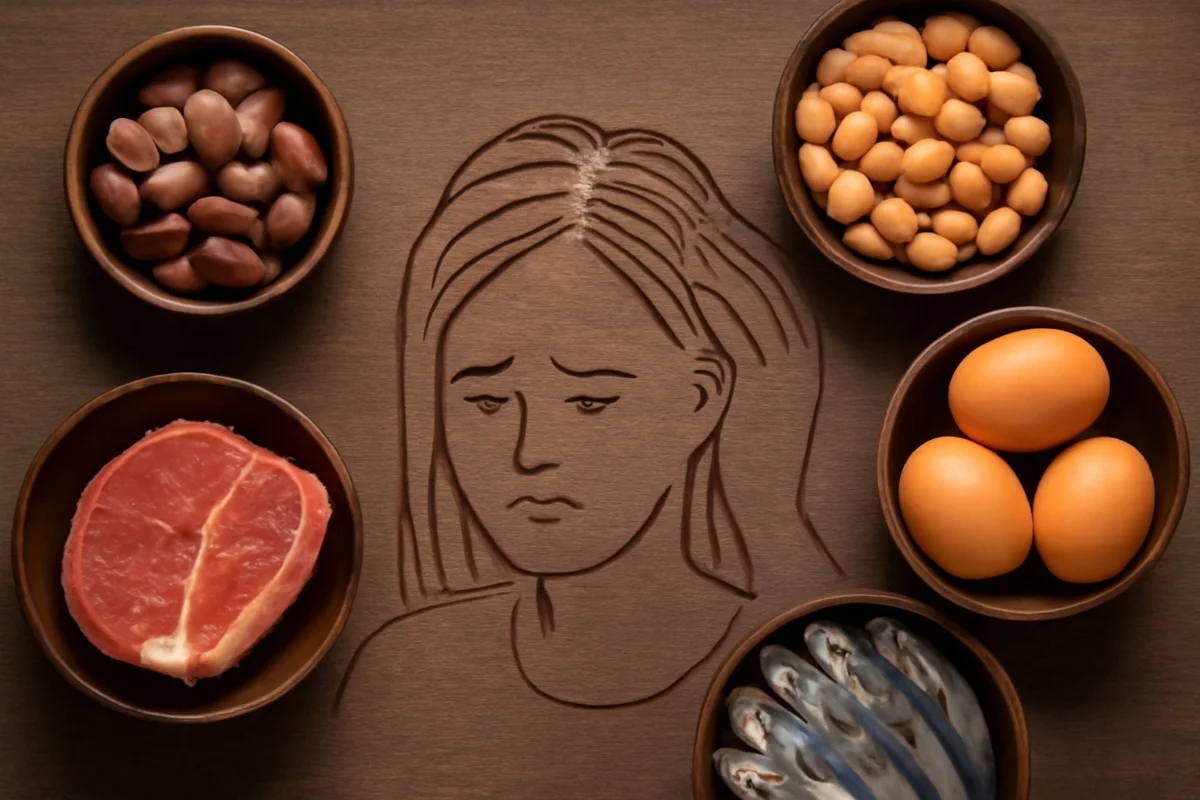Hair thinning linked to nutrient deficiency is becoming a growing concern, with scientists reporting surprising rises in strand loss and visible scalp. Research reveals how a lack of key vitamins and minerals strains hair health, accelerating thinning in unexpected ways. This emerging evidence highlights a hidden factor behind hair loss trends, urging awareness of essential nutrients for healthy hair growth and scalp vitality.
Hair Thinning Trends Spike Among Young Adults Today
Hair thinning is no longer just an older adult’s concern. Increasingly, young adults in their 20s and 30s report early signs of thinning hair and visible scalp patches. The pressures of modern life, stress, pollution, and busy lifestyles contribute heavily. With hair loss now impacting self-esteem and daily confidence, this trend calls for attention to underlying causes.
Many who never expected hair concerns this early are now seeking answers and solutions as their hair health declines. This rise is a clear public health sign, urging further investigation into preventive measures and treatments.
DON'T MISS
Scientists Link Nutrient Deficiency To Accelerated Hair Shedding
Recent research highlights nutrient deficiencies as major contributors to hair thinning and hair loss. Scientists note several vital nutrients that are commonly lacking in affected individuals. Healeo Nutrition identifies six key nutrients that impact hair loss:
- Iron: Essential for transporting oxygen to hair roots. Low iron restricts oxygen flow, weakening follicles and speeding hair fall.
- Zinc: Helps repair hair tissue and maintain oil glands. Deficiency causes hair shedding and scalp irritation.
- Biotin: Critical for keratin production that strengthens hair. Biotin shortage results in brittle, easily broken strands.
- Vitamin D: Stimulates new hair follicle growth; low levels link to alopecia and thinning hairlines.
- Protein: Hair is primarily protein; insufficient intake slows regrowth and weakens strands.
- Omega-3: Nourishes the scalp and promotes thick hair. Lack of omega-3 causes dryness and dull hair.
Understanding these nutrients’ roles clarifies why their deficiency worsens hair thinning. Addressing this nutrient gap can slow hair loss progression naturally and effectively with vitamins for hair growth and minerals for hair health in focus.
Modern Diet Patterns Trigger Hidden Nutrient Deficiency Risks
Today’s fast-paced life has driven an increase in poor dietary habits. Reliance on fast foods and processed meals often means missing essential vitamins and minerals vital for hair health. Many diets lack adequate protein, iron, zinc, and healthy fats, heightening the risk of hidden nutrient deficiency.
This nutritional gap quietly damages hair follicles, making hair thinner and more fragile over time. As people remain unaware of this link, hair thinning continues unchecked. Promoting awareness around the importance of balanced nutrients can help reverse these effects before hair loss worsens.
Hair thinning trends and hair loss are closely tied to nutrient deficiency and diet patterns. Raising awareness of vitamins for hair growth and minerals for hair health holds promise for stopping escalating hair loss issues.
Disclaimer: This content, including advice, provides general information only. It is not a substitute for a qualified medical opinion in any way. The methods and claims mentioned in this article should be considered as suggestions only; DNP India neither confirms nor denies them. Always consult a doctor before following any such suggestions/treatments/medications/diets.
